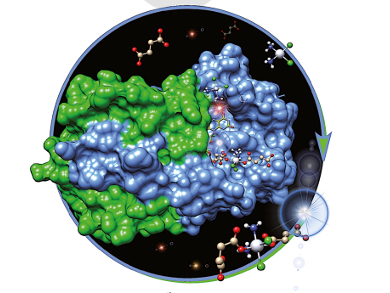Platinum drugs are commonly used for the treatment of cancer. However, undesirable side effects are associated with their administration. Researchers have proposed a variety of solutions to overcome these problems, including the use of light-activatable prodrugs to localize the effects of anticancer agents.
Luca Salassa, Donostia International Physics Center, Donostia, and Ikerbasque, Basque Foundation for Science, Bilbao, both Spain, Fernando López-Gallego, CIC biomaGUNE, Donostia, and ARAID Foundation, Zaragoza, both Spain, and colleagues have developed a strategy for the light activation of metal-based anticancer prodrugs with high efficiency and selectivity. The researchers discovered that flavins, including some flavoproteins, can act as photosensitizers and photocatalysts to facilitate the transformation of platinum(IV) and ruthenium(II) complexes into bioactive species at convenient excitation wavelengths. Flavin catalysis towards metal complexes is bioorthogonal, meaning it occurs in the biological environment without interference from several biocomponents.
These results provide new design concepts in metal-based photochemotherapy, for instance, exploiting flavoproteins as endogenous phototriggers for prodrugs. Furthermore, the flavoenzyme NADH oxidase is capable of performing these unconventional reactions in the dark, hinting that flavoproteins may participate in the mechanism of action of platinum prodrugs.
- Bioorthogonal Catalytic Activation of Platinum and Ruthenium Anticancer Complexes by FAD and Flavoproteins,
Silvia Alonso-de Castro, Aitziber L. Cortajarena, Fernando López-Gallego, Luca Salassa,
Angew. Chem. Int. Ed. 2018.
https://doi.org/10.1002/anie.201800288




